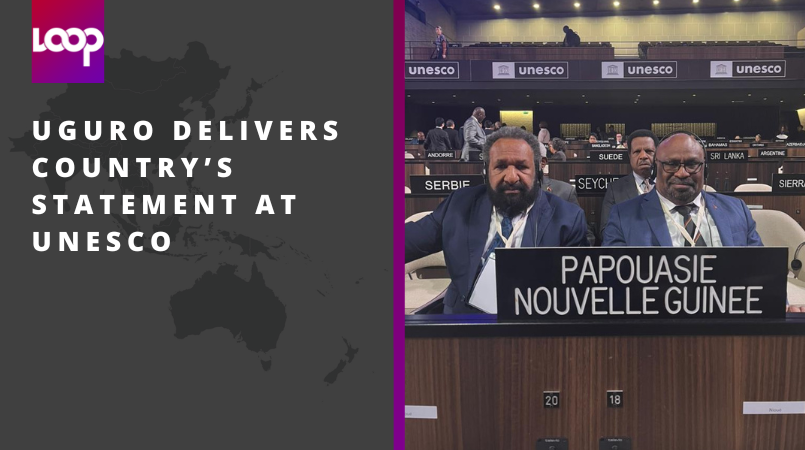
Papua New Guinea’s education system has undergone many changes from a rigid structure and an Outcome Based Education Curriculum to a Standard Based Education Programme which also focuses on teacher education standards.
Investing in teachers is investing in learning as they play a pivotal role in achieving SDG 4.
Minister for Education Jimmy Uguro made these remarks during the 42nd Session of the United Nations Educational, Scientific and Cultural Organization (UNESCO) in Paris, France.
Uguro told the 42nd Session of UNESCO that since joining UNESCO in 1976, Papua New Guinea continues to uphold the overall Mission of the Organization by including Pillar II of Papua New Guinea’s Vision 2050 to recognize a healthy, educated and skilled population as a catalyst for economic growth and development in the country.
He added that this was further strengthened in the 50 Year Education Transformation Vision (2025-2075) that the Government has recently approved.
This strategic plan seeks to work towards providing a roadmap to improve and upscale all areas of existing curriculums, teaching, learning, literacy as well as the education infrastructure.
“From deep rugged mountains to low-lying coastal villages and scattered islands, access to quality education, teaching and basic resources remains a great challenge. Communication, transportation and lack of technology also adds to these challenges.”
Minister Uguro said Papua New Guinea is keen on fostering partnerships in teacher training and teacher-student exchange programmes and is committed to increasing efforts in providing safe learning environments, enabling digital transformation, increasing technology, strengthening technical and vocational education and training (TVET), together with STEM education.
“This year, the Government has again declared a 100% Tuition Free Fee Policy for all students in Elementary Schools up to Secondary and Vocational Institutions. This free education policy aims to ensure that all children must complete basic education life skills to sustainably support them in the future.
“Through the Flexible and Open and Distance Education (FODE), my Government has also given second chances for education opportunities to over 50, 000 young people in the last 2 years with the aim to leave no-one behind.”
Meantime, the Minister for Education welcomes the decision by UNESCO to establish a country office in PNG and is committed to ensuring the complete set up of the office.
He said that given the size, as well as the challenges, the expertise of UNESCO can assist the Government in transforming the education system, as well as the other collective goals of UNESCO.
Meanwhile, Minister Uguro commended UNESCO for the Small Island Developing States (SIDs) Strategy.
He said Pacific Island countries continue to be confronted by multiple challenges that are increasingly complex and cross-cutting such as Climate Change, Ocean Pollution and Acidification, Biodiversity Loss, including the post Pandemic Recovery of COVID-19 to name a few.
He said a strategy that is specific to our needs is therefore welcomed and we call on Member States to endorse and support the operationalization of this Strategy.
